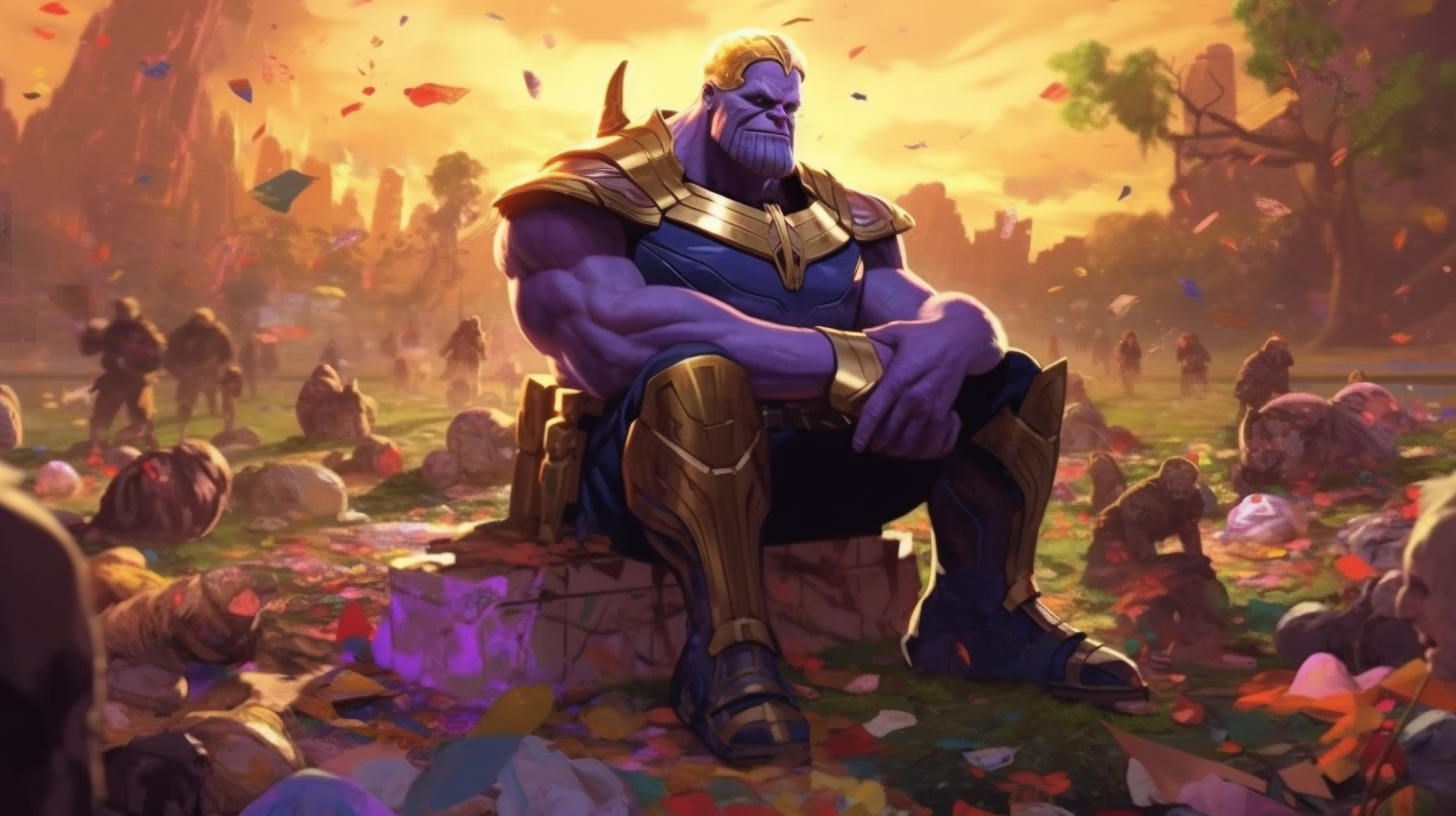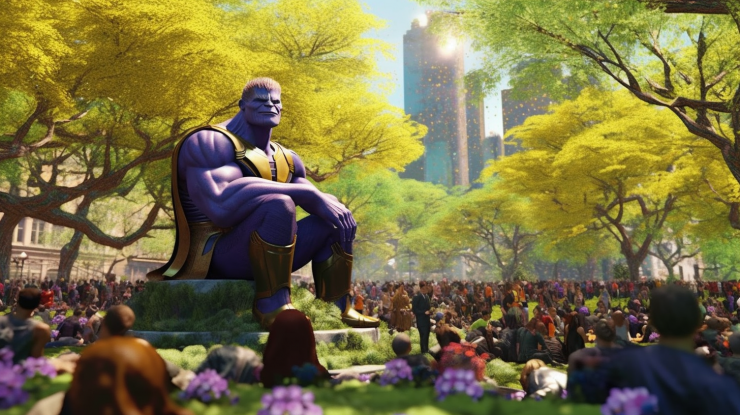Marvel’s “Endgame” left us with an important question: Was Thanos right? He identified a problem – overpopulation and overconsumption – a “Thanos Philosophy”.
Now, I was unaware of this, but a debate has been raging on the internet regarding “Thanos Philosophy” or if Thanos was right, attracting many participants, and I would like to add my two cents, albeit belatedly.
The movie introduced us to a villain with a strong moral compass – Thanos. So, what was his philosophy? It was simple: Thanos believed that the universe was plagued by overpopulation and overconsumption, and he aimed to eradicate half of all life to ensure the survival of the universe. But did Thanos truly think this through?
The Utilitarian Thanos Philosophy and Its Fallacy
Thanos advocated for a radical solution, which is commonly known as the Philosophy of Thanos – the idea being the greatest good for the greatest number. However, his philosophy mirrors two distinct theories: utilitarianism and nihilism.
On one hand, he seems utilitarian, seeking the greatest good, but on the other hand, he appears nihilistic, endorsing destruction. However, his plan does not align with either theory. Utilitarianism promotes happiness, yet Thanos’ plan brought about misery. Similarly, nihilists reject purpose, but Thanos had a clear objective. Therefore, his philosophy was neither utilitarian nor nihilistic. Instead, it echoed the concerns raised in Paul R. Ehrlich’s 1968 book, “The Population Bomb,” which warned against overpopulation.
Ehrlich’s book shed light on three crucial problems resulting from unchecked population growth. Firstly, resource depletion emerged as a significant challenge, secondly, environmental degradation became a pressing issue, and lastly, the book emphasized the issue of food security, as rapid population growth outpaced the rate of food production, resulting in potential food shortages, famine, and unequal distribution of resources, particularly in developing countries with high population growth rates.
While “The Population Bomb” has faced criticism, its focus on the interconnectedness of population growth, resource consumption, and environmental impact remains relevant. However, Thanos’ solution, though grand in design, was short-sighted.

Why Thanos Was Wrong
Let’s delve into why Thanos’ calculation was off. If every species mimicked the hierarchical structure, consumption patterns, and population growth of Earth’s species, Thanos’ solution wouldn’t work long-term.
It would merely delay the inevitable. How so? Let’s take humans as an example. In 1903, the world population was 1.6 billion. Fast forward 120 years, and it reached 8 billion. By snapping his fingers and causing the Blip, all Thanos did was send us back to 1974 when the human population was 4 billion, effectively turning back the clock. Within 50 years, we would be back at 8 billion. Moreover, the population rebound could be even faster due to increased birth rates as a fallout of the “Blip.” Therefore, his solution would serve as nothing more than a band-aid for a “disease”, lasting only for 50 years or less.
What about the aftermath of his plan? It caused suffering, chaos and pain. Was the effort and suffering worth it if we only gained 50 years? Probably not.
Given the power of the Infinity Gauntlet, Thanos could have explored more sophisticated and long-term solutions.
For instance, he could have altered the fertility window by half or even a quarter for every species. Reducing this window would have dramatically decreased the universe’s population within a period of 10 years.
Alternatively, he could have imposed an eight, ten, or even twelve-year gap between births at a genetic level, rendering no species fertile right away and naturally enforcing an interpregnancy gap. These painless solutions could have stabilized the population in a more permanent way.
A Lesson for Thanos: Education and Diversity
The lesson for Thanos is that he needed to study more. A little Biology, Psychology, and Economics could have helped him see the flaws in his plan. He jumped to conclusions too quickly, opting for a quick fix rather than a sustainable solution.
As it turns out, the real solution to the universe’s problems lies in education and diversity of thought. These factors pave the way for creativity and viable, economically optimized solutions. As always, the best ideas come from open minds, not clenched fists that snap fingers.
Like the topic, let me know
Stay updated with the latest science and tech news on my website. Share it with your friends and colleagues for easy reference.
As a tech enthusiast, you can contribute to this topic too. Reach out to me and share your ideas. Let’s shape the future of technology together.







